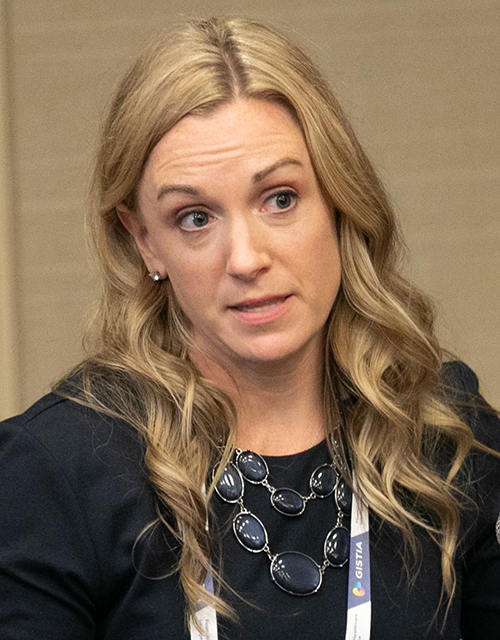Investigators may look into various angles, including drive-through testing sites for COVID-19 and whether uninsured patients were verified before free tests
Three healthcare compliance attorneys gave a clear and concise message to clinical laboratory managers and pathologists at the 2022 Executive War College Conference on Laboratory and Pathology and Management: Expect the government to scrutinize reimbursements it paid for COVID-19 testing, particularly for testing conducted at drive-through sites that popped up all over the country.
“The important question is: What is the fair market value of those specimens?” noted attorney Emily Johnson, JD, a Member at law firm McDonald Hopkins in Chicago. Johnson spoke during a legal panel on Wednesday at the Executive War College in New Orleans.
The panel spent 75 minutes discussing various legal concerns, many of them related to COVID-19 testing, before a crowd of about 80 attendees.

Audits May Be Coming of HRSA Reimbursements for COVID-19 Testing
Consumer Reports noted in a January article that COVID-19 testing prices varied wildly both in traditional healthcare settings and popup sites—in some cases, exceeding $1,400.
The average price for such a test within an insurance company’s network was $130.
Some people paid for those tests out of pocket or got them covered by insurance. For uninsured patients, the federal Health Resources and Services Administration (HRSA) established a pool of money to reimburse labs for free COVID-19 tests. That pool recently dried up and Congress has not approved more funding.
The U.S. Department of Justice may investigate the uninsured aspect of claims—specifically, whether there were attempts by laboratory staff members to verify whether a patient truly was not covered by health insurance, explained Karen Lovitch, JD, Chair of the Health Law and Healthcare Enforcement Defense Practice at law firm Mintz in Washington.
These issues bring up False Claims Act risks, especially if a clinical laboratory audits its own COVID-19 test claims. “If labs go back retroactively and determine a claim was paid that shouldn’t have been paid, those labs must absolutely be prepared to return that money,” Lovitch warned.
Clinical Laboratories Need a Business Plan for Post-COVID-19 Testing
Related to HRSA payments ending for COVID-19 testing of uninsured payments, clinical laboratories should be wary about outright ending such testing without a documented business plan demonstrating the rationale for doing so, Johnson noted. That advice is relevant for labs and pathology groups that received financial assistance from HRSA’s Provider Relief Fund during the pandemic.
Some have interpreted information about the fund to mean providers are obligated to treat uninsured patients, Johnson added.
“If I stop accepting uninsured patients for COVID testing, am I in violation of the Provider Relief Fund?” she asked. A clearly documented reason for doing so, such as a need to keep the business afloat through paid testing, would be a first step for concerned medical laboratories to take, she added.
Another point for labs to ponder: In March, the federal government named Kevin Chambers, JD—who is currently Associate Deputy Attorney General at the DOJ—as the first Director of COVID-19 Fraud Enforcement.
That appointment emphasizes the government’s commitment to undercovering SARS-CoV-2 wrongdoing, said attorney David Gee, JD, a Partner at law firm Davis Wright Tremaine in Seattle. Gee rounded out the panel at the Executive War College.
“I guarantee Chambers’ bosses want him to demonstrate the government is serious about COVID-19 fraud,” Gee commented.
EKRA Becomes New Tool against COVID-19 Fraud
Finally, as Dark Daily previously reported, the Eliminating Kickbacks in Recovery Act of 2018 (EKRA) is sometimes being used to prosecute cases of alleged COVID-19 testing fraud.
EKRA has generally been associated with rules against paying clinical laboratory sales reps a commission based on testing volumes they generate. However, Johnson predicted more EKRA cases will be filed related to alleged kickbacks paid in return for referrals for COVID-19 testing.
“Prosecutors seem willing to go after these cases aggressively,” she added.
And in The Dark Report’s upcoming Regulatory Update, “Dept. of Justice: EKRA Governs Lab Sales and Marketing Commissions,” Dark Daily’s sister publication covers how a recent ruling by a federal judge may weaken EKRA and “immunize conduct that drives up medical costs.”
Subscribers to The Dark Report will want to stay informed on critical changes taking place that affect how EKRA operates.
—Scott Wallask
Related Information:
Your Questions About Home COVID-19 Tests, Answered



